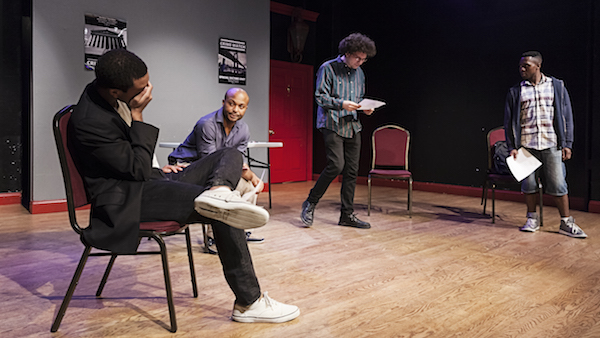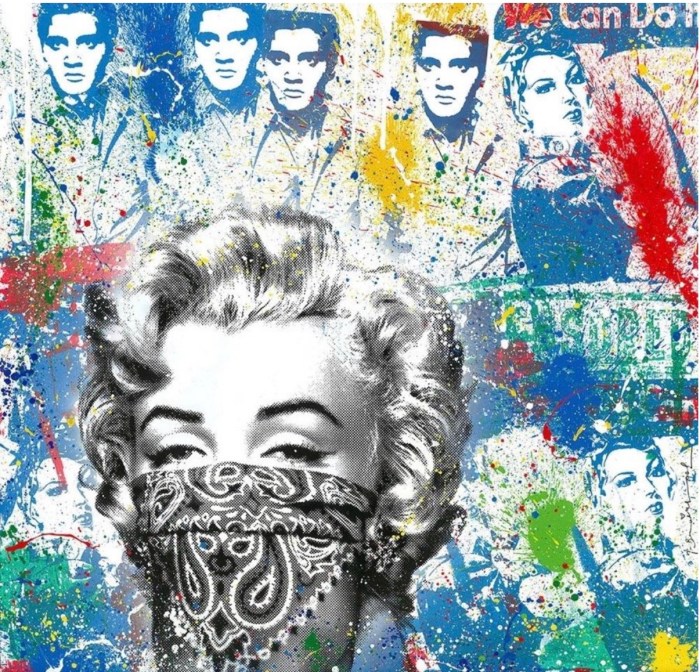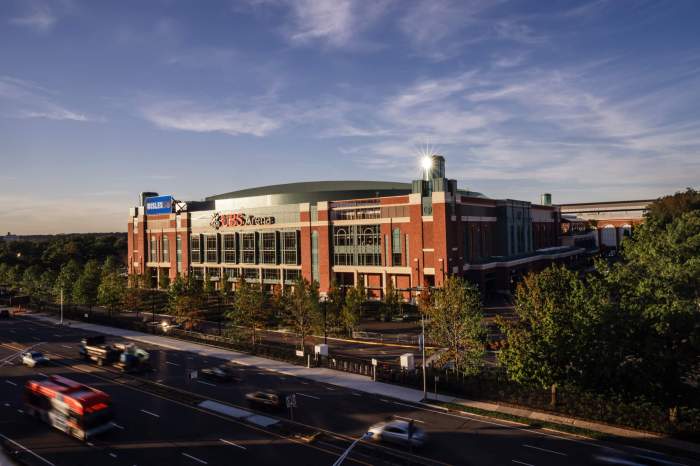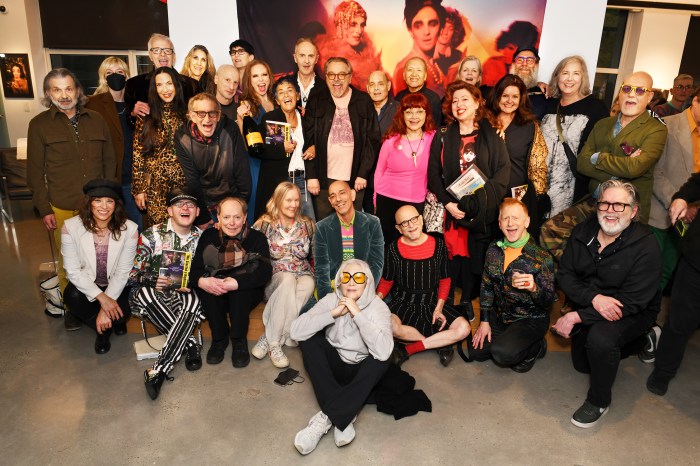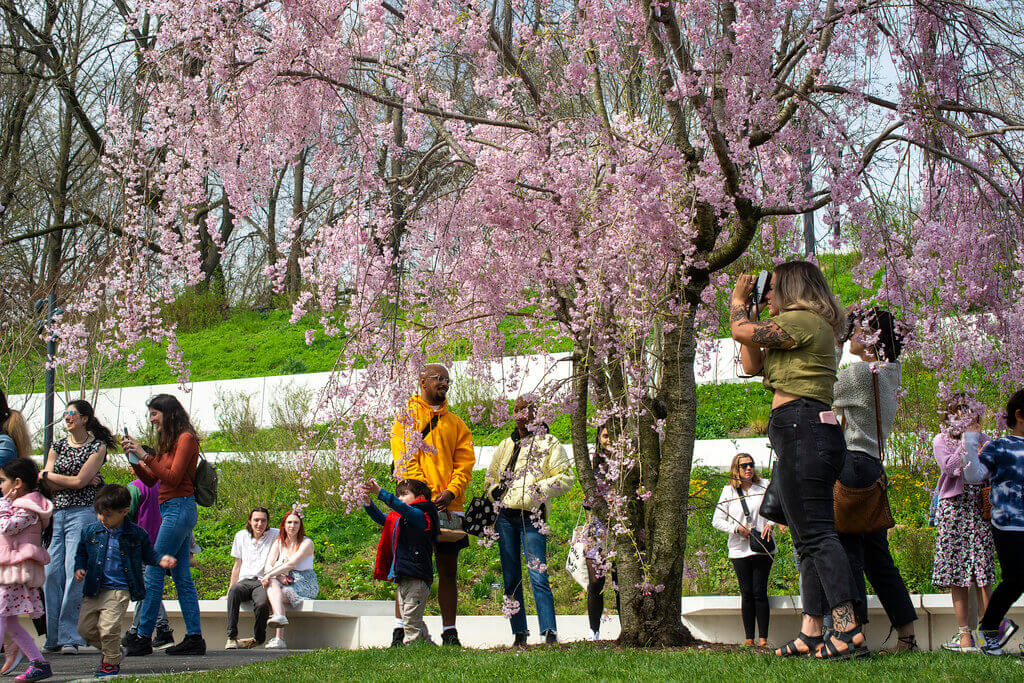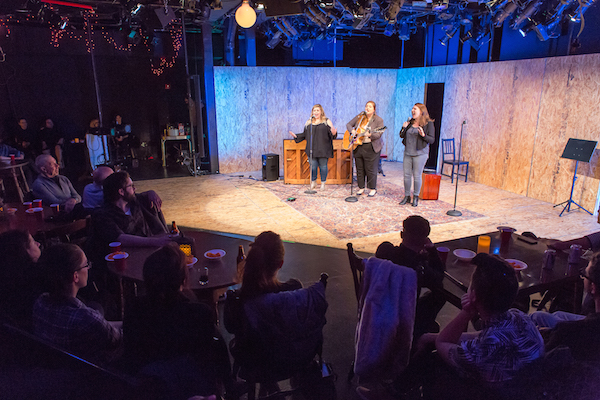
BY SCOTT STIFFLER | It wasn’t that kind of Inaugural Ball.
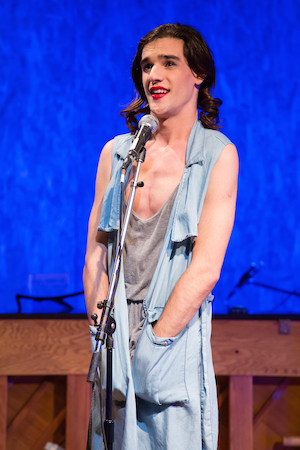
Nobody looked past trans theatre artist Maybe Burke’s talent, caring only about who designed the clothes; and eyes didn’t dart when Natalie Douglas declared, “I’m a woman, so bleeding is political” before nailing a song about meeting Jesus in a Christopher Street gay bar; and not a single person in attendance answered the refrain of vocal trio SIREN — “How am I going to be an optimist about this?” — with the snide suggestion that they just get over it already and give the new guy a chance.
There were, however, plenty of knowing nods when SANCTUARY co-creator Jonathan Cottle opened the month-long series by acknowledging, “Yeah. It’s been a day.”
Those assembled on Jan. 20 in the Mainstage space of Manhattan’s HERE arts center stood in stark contrast to how Donald J. Trump celebrated the first night of his presidency. Actually, they sat — cabaret-style, downing wine and beer and cheese puffs, and looking pretty damn good in the candlelight, given the grim tone of that day.
By the 8:30 p.m. curtain, a number of progressive causes had been (and remain) ghosted from the White House website — and a prediction of the same fate for federal arts funding was among the ominous things occupying the top of everybody’s news feed. Although Twitter and Facebook know what you like to hear about, an informed algorithm doesn’t cut it when the thing you really need is a brick-and-mortar destination whose prime directive is to celebrate lives lived outside the margins.
Performances, dance events, panel discussions, and community organizing training sessions on the SANCTUARY schedule through Feb. 18 may provide a safe space for participants, but the project itself is rooted in leaving one’s comfort zone: Cottle, a set designer, and old friend Adam Salberg, a sound designer, had never taken it upon themselves to produce a show before.
“We’re not a writing/directing duo,” noted Cottle — a disclaimer repeated at the SANCTUARY Inaugural Ball, where he and Salberg submerged themselves in the uncharted waters of hosting a variety showcase.
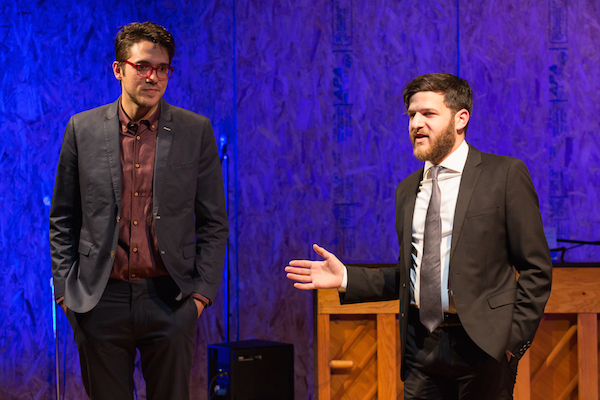
“Fair warning,” announced the visibly nervous Salberg. “I’m on enough Xanax to sedate a small horse.” The techies-turned-emcees didn’t have much to apologize for. Between the two of them, they turned out to be one fine Ed Sullivan. As for what you’ll see during the month-long series, Azure D Osborne-Lee, Debra Morris, and Jenna Grossano (she of the nonprofit theatre company Less Than Rent) were brought on board to curate the talent.
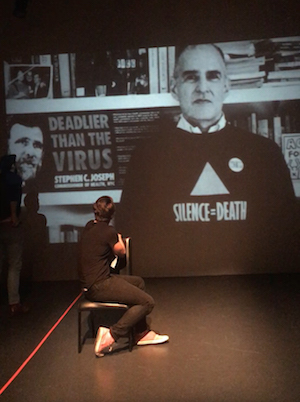
The results of their effort include Jan. 27-29’s “Next Faggot Nation,” in which The Fossick Collective uses “Faggots’” (Larry Kramer’s 1978 novel of pre-AIDS sex and drugs), along with other icons and influences, as a way to “hold a mirror up to the younger generation of gay men to bring a call to action.” Conceived and designed by Ran Xia in collaboration with Charlotte Arnoux, Feb. 8’s “Harmony” is a sound sculpture that draws upon the collective consciousness to form an audio document of in-the-moment global concerns. Feb. 14’s “Monopoly: A Landlord’s Game” is a dance piece by Megan Minturn, honoring the life of little-known Monopoly creator Lizzie Maggie and applying her board game’s rules to, among other things, economic injustice and for-profit prisons. Two panel discussions — “Envisioning Full Gender Inclusivity in the American Theater: What Does It Look Like?” and “Ally-ship in the Arts: How to Be a Change-maker Without Making It About You” — don’t have dates yet, but are expected to land in the last two weeks of the schedule.
For the visual identity of SANCTUARY, Cottle drew on his day job know-how (along with a fondness for pews and red curtains) to immerse the audience in “different protest and counterculture movements, including Weimar, Berlin — that queer sexual revolution; and the riot grrrl feminist punk scene in the early ’90s. The other inspiration is the idea of making it a sacred space, because a lot of churches have been associated with activism, with human rights movements.” As for content on the stage, “We decided we wanted to make the heart of this about providing a forum for artists who were from traditionally marginalized groups, who are targets of the administration; queer folks, feminists, people of color.”
Many of the artists presented by SANCTUARY have been making personal, political, confrontational work, noted Cottle, “since way before the election, and they will continue to make work like this. We didn’t seek out any specific thematic material. We did get some stuff created in response to the election, but many people already had stuff that addresses racism or misogyny — and it’s made all the more relevant now.”
One notable example of the latter is “Room 4,” which gets another well-deserved go-round after a successful fall run at the Peoples Improv Theater in Manhattan. Written by the team of Marina & Nicco, it forces four black actors to repeat the same audition for a bit part in a horribly written police procedural drama. Having tremendous fun with its time loop gimmick (which the playwrights know is every bit as stereotypical as that coveted “Drug Dealer #2” role), the one-act is full of surprises — the best of which happens when the hungry thespians become aware of their power to shatter an unjust cycle by taking a red pen to what’s been written for them. It’s a fitting metaphor: for the play, the whole of SANCTUARY, and the daunting task that lies ahead.
Through Feb. 18 at HERE (145 Sixth Ave.; enter on Dominick, one block south of Spring St.). Most performances begin at 8:30pm and most tickets are $20. For reservations and the schedule of events, visit here.org (order tickets by phone 212-352-3101).
